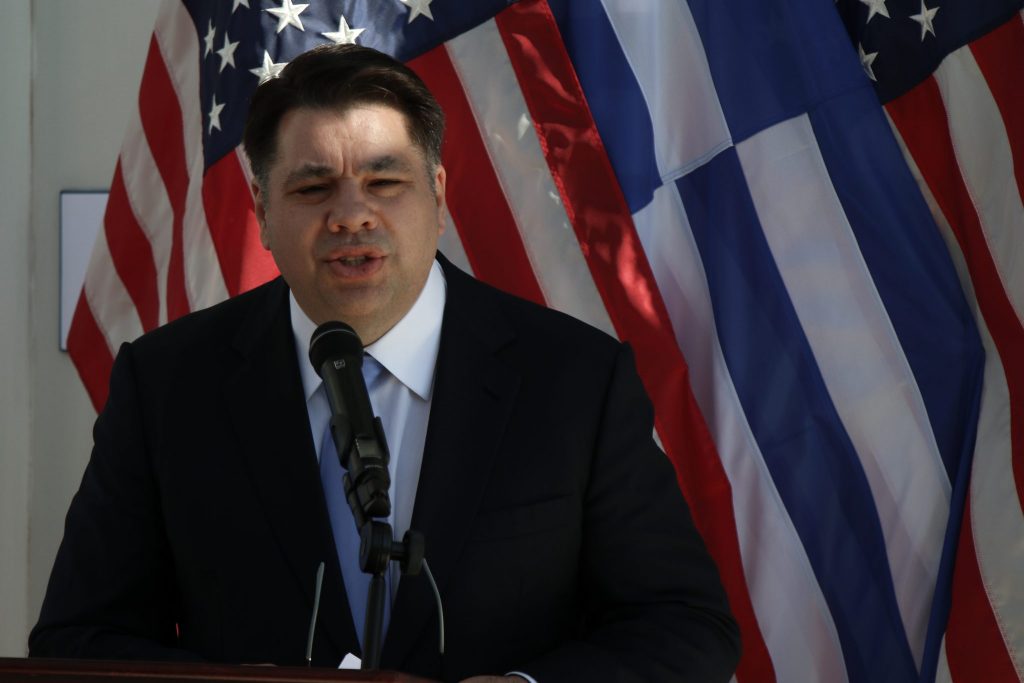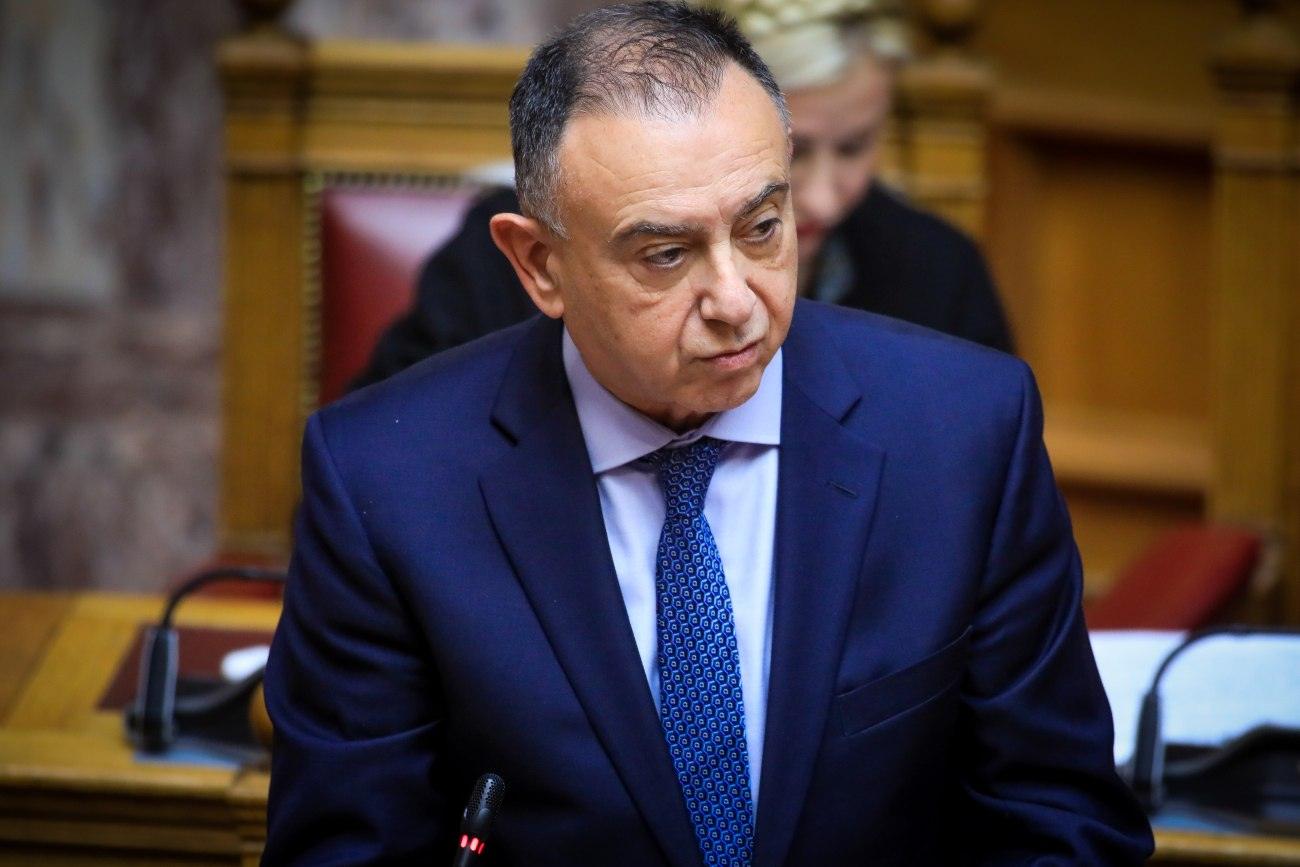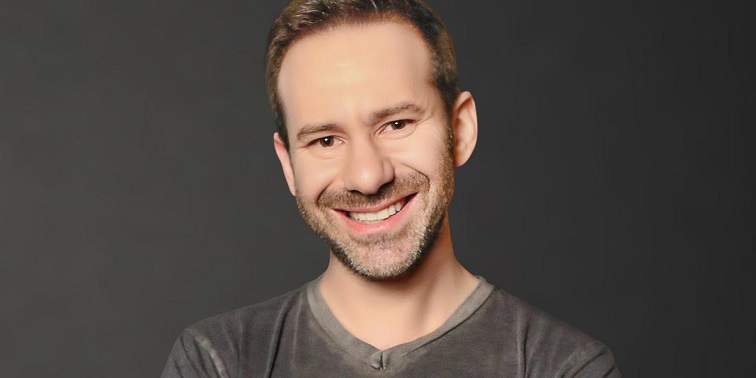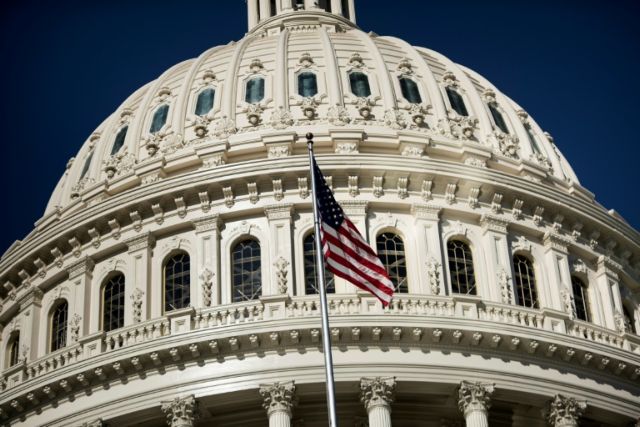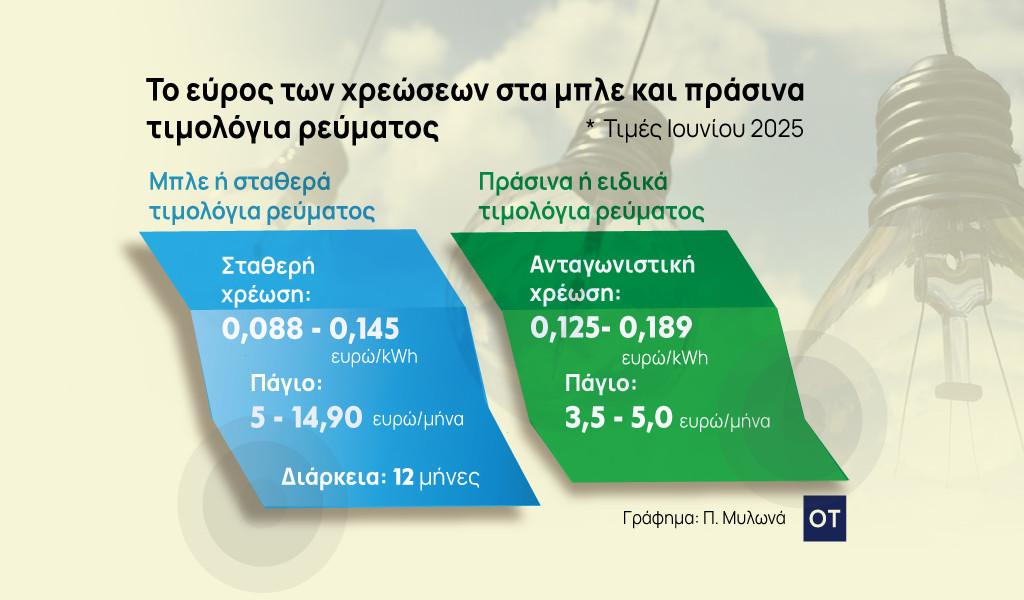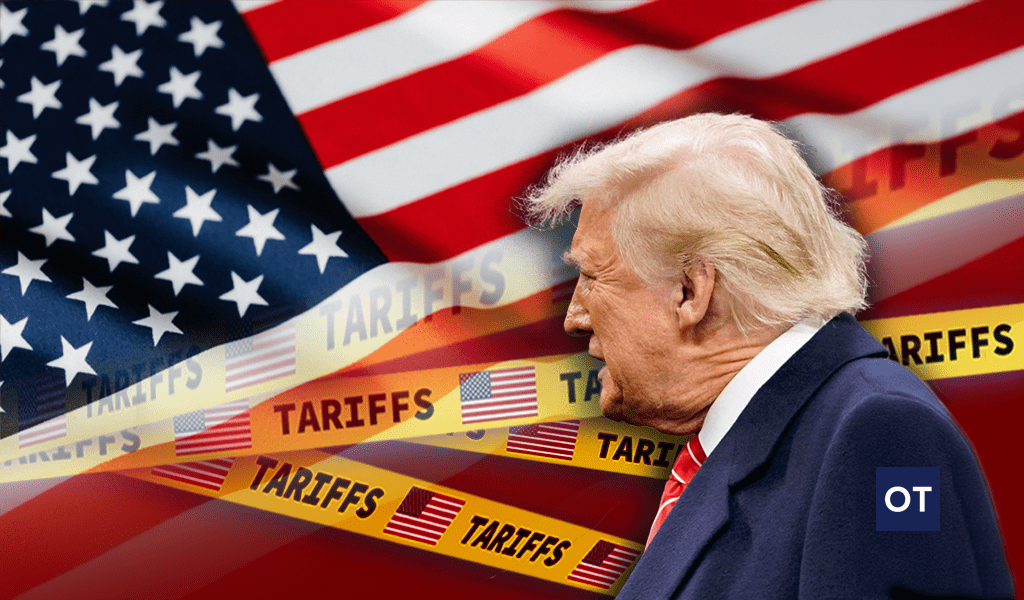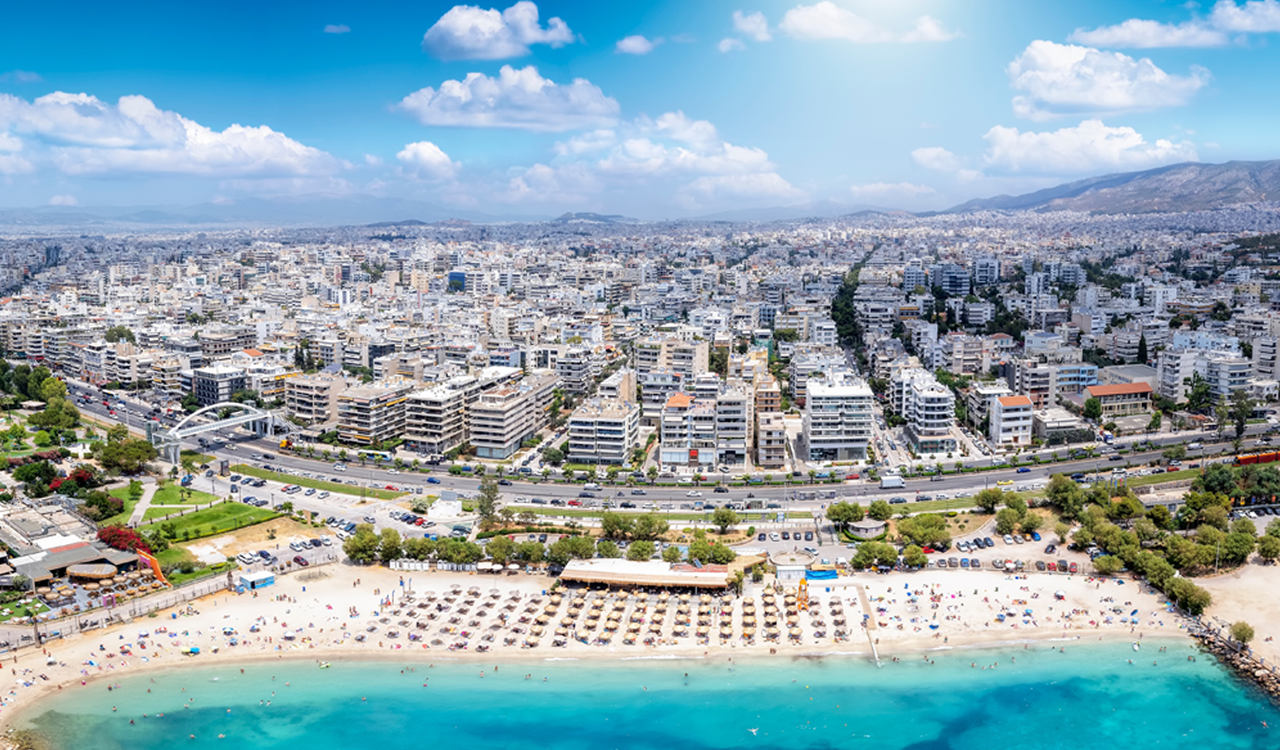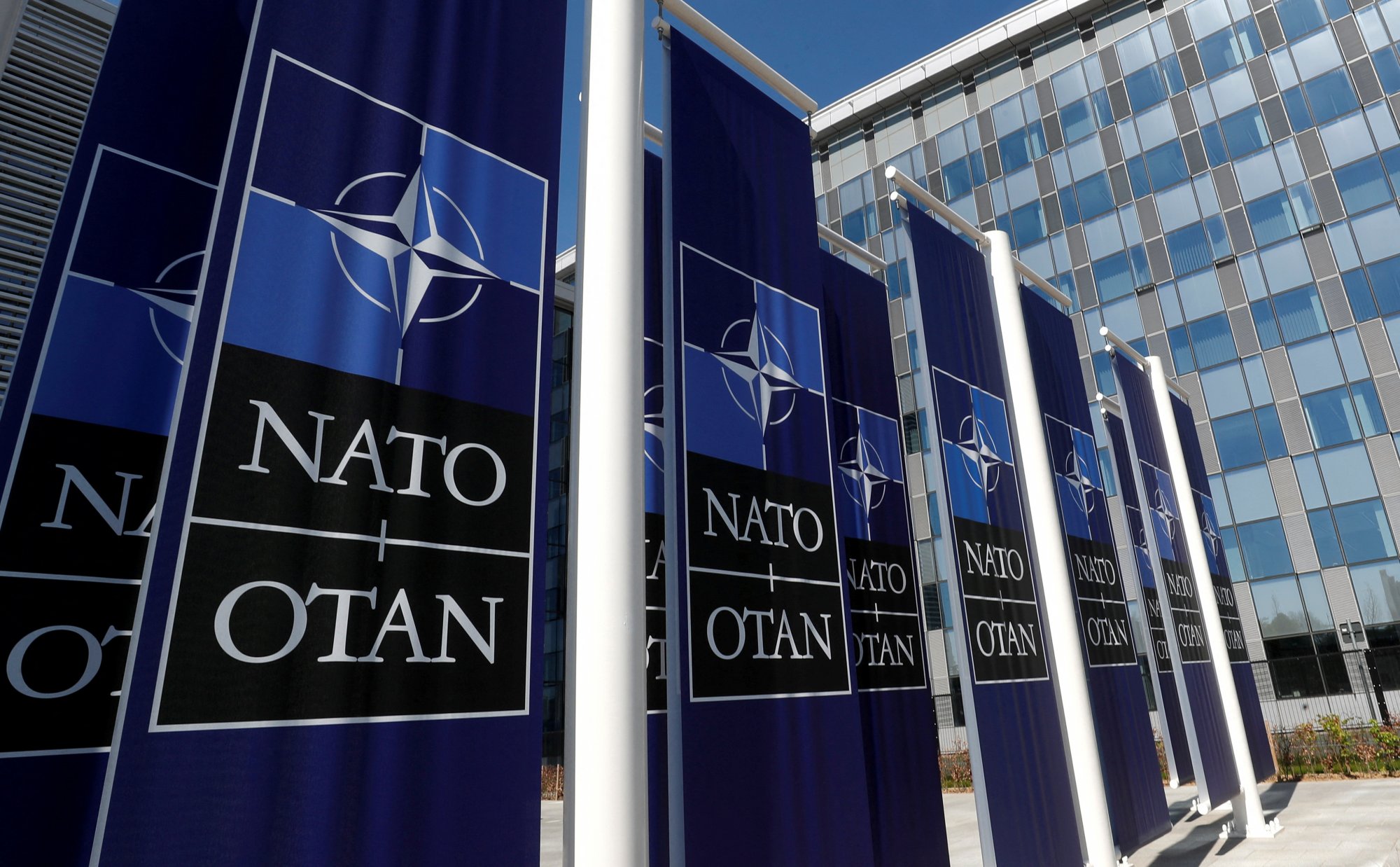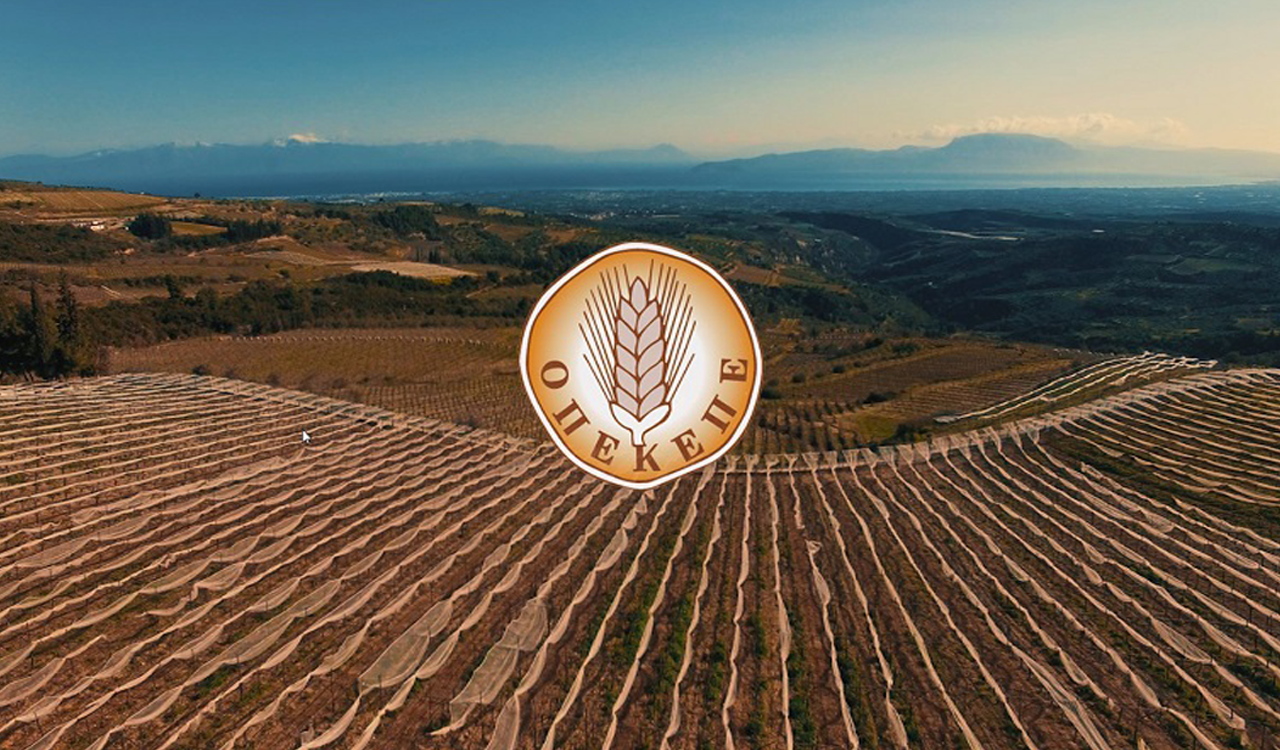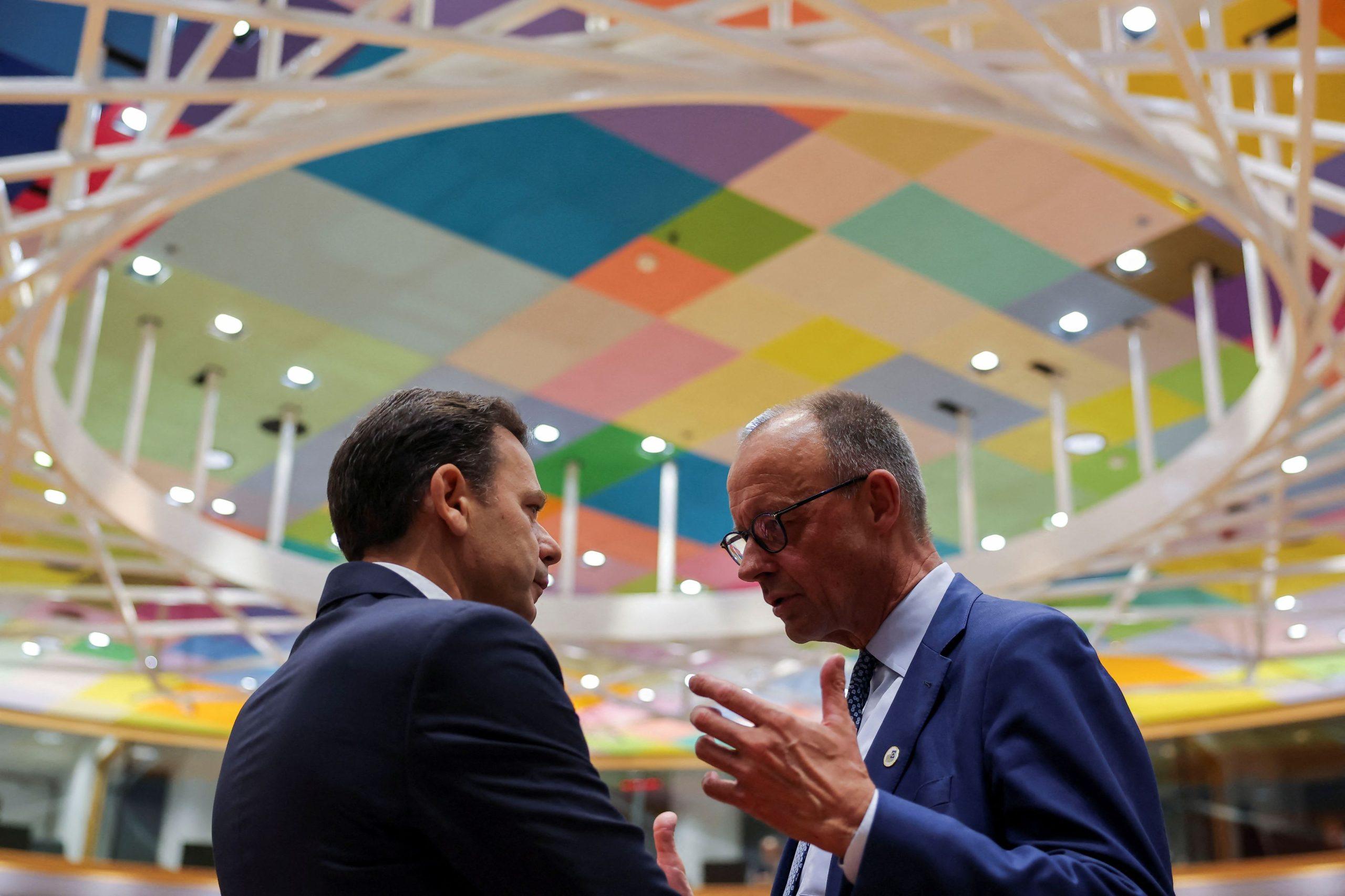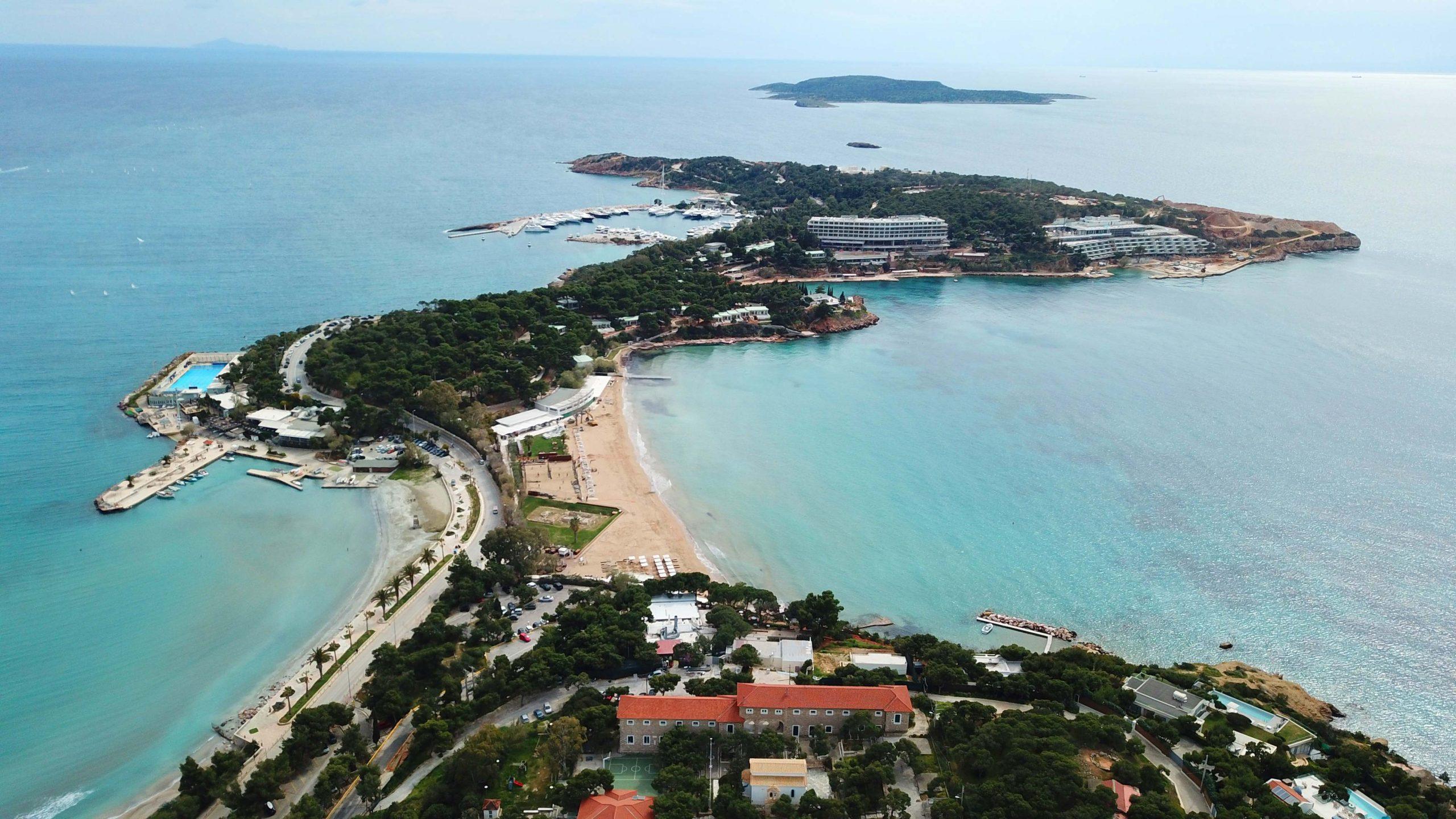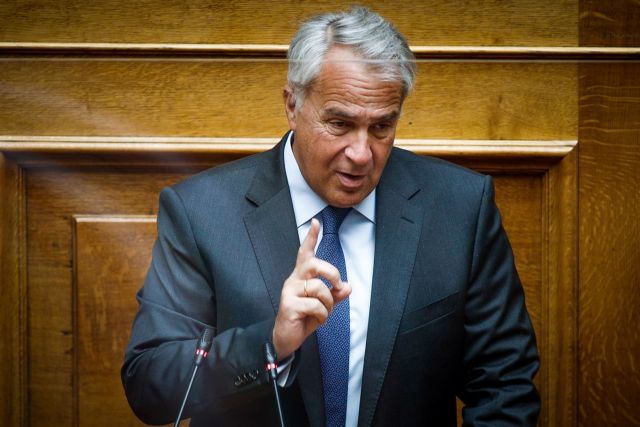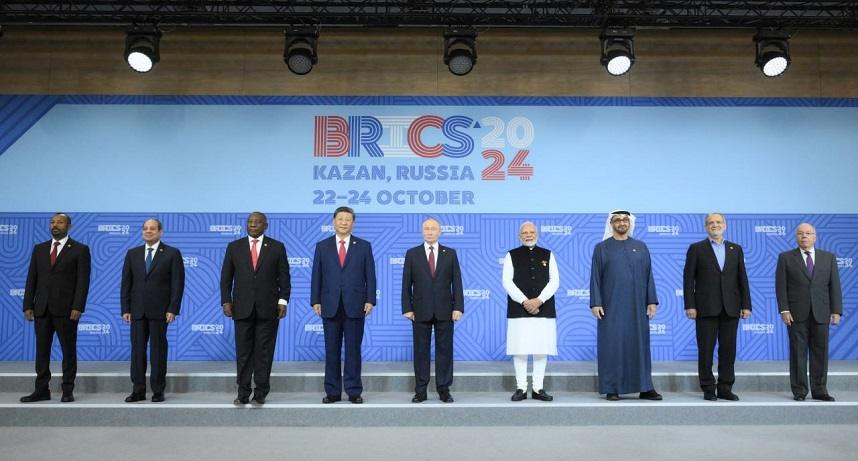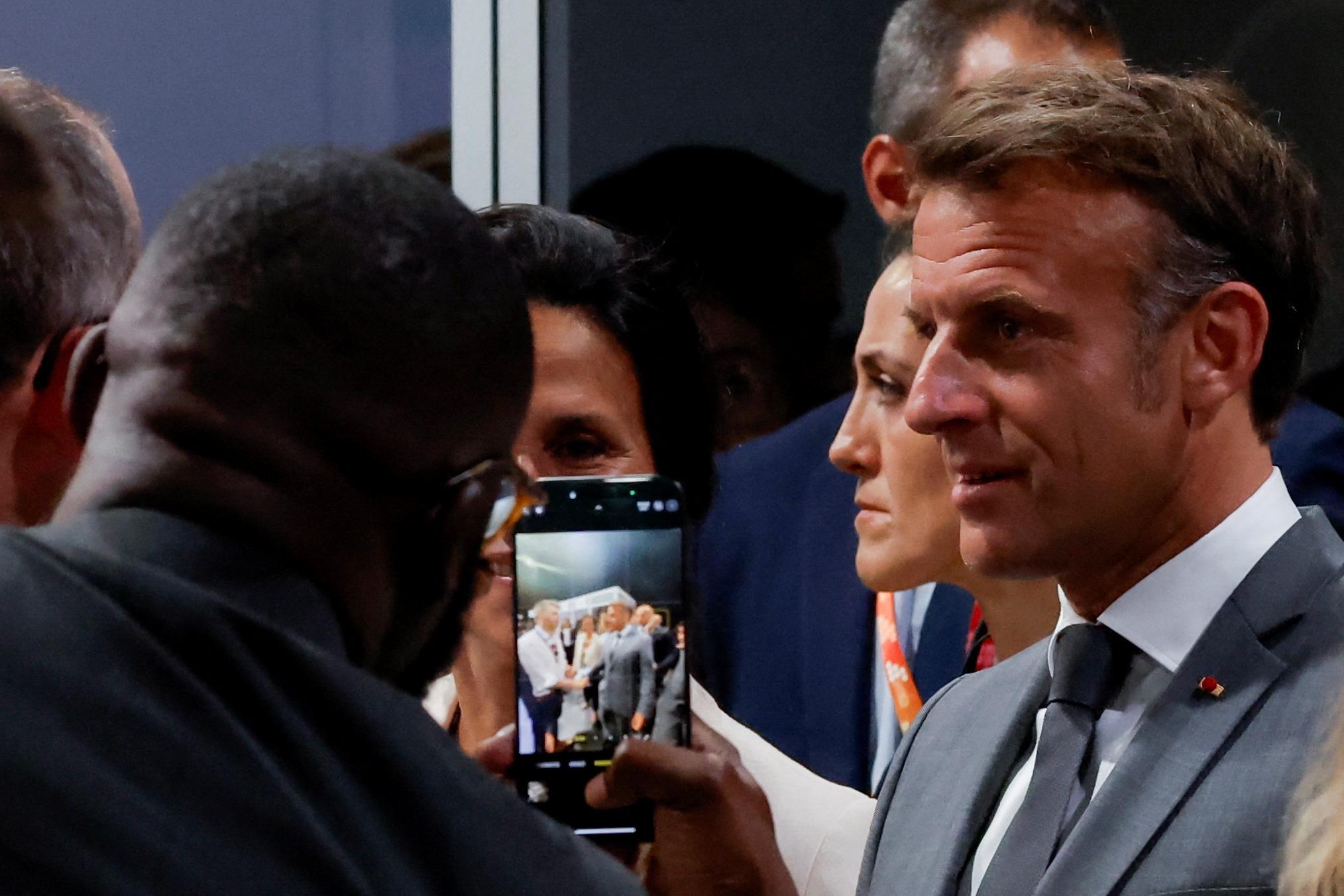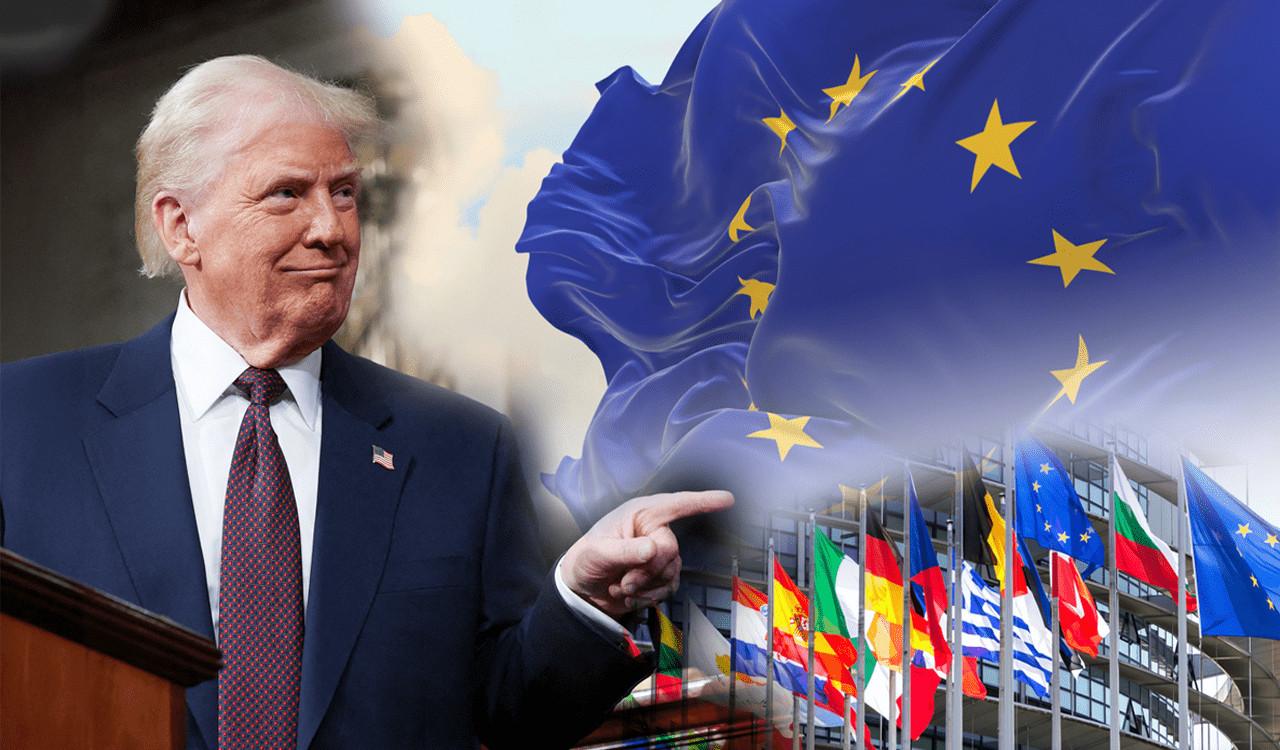The importance of strategic cooperation between Greece and the United States, especially in a difficult geopolitical situation, refers to the US Ambassador in Athens, George Tsunis. Speaking to Vima, ahead of the meeting between Gerapetritis and Blinken in Washington and the start of the fifth round of the Greece-US Strategic Dialogue, George Tsunis stresses Greece’s role in the region, the importance of Souda and Alexandroupolis and the announcements on the F-35.
Talking about the fifth round of the Greece-US Strategic Dialogue, George Tsunis underlines that «this is an opportunity for us to shine a spotlight on the strong partnership between both countries, to highlight areas in which we’d like to focus in the year to come, and to unify efforts across the whole-of-government».
Mr. Ambassador, we are talking about the best level of relations between Greece and the United States in the last 30 years. What does this mean?
During his January 6 visit to Chania, U.S. Secretary of State Antony Blinken commented that he couldn’t recall a time in the past 30 years when the U.S.-Greek relationship was as strong as it is now. This is so true. I see this relationship growing every day and I’m proud to be a part of it. I also think it speaks volumes that the Prime Minister hosted the Secretary in his family’s private residence in Crete. Our partnership, and the enduring friendship between our two countries, speaks to the ties between our two peoples, the respect and cooperation between our leaders, and a shared recognition that we’re facing some of the world’s most significant challenges together. We’re grateful to have such a steadfast partner in Greece, and we believe that by working together we’ll succeed in supporting Ukraine’s efforts to stop Moscow’s war of aggression; bring greater peace and stability to the Mediterranean region; combat climate change; increase educational opportunities; and deepen bilateral trade and investment to bring economic benefits to both our peoples.
What is the role of Greece in an environment of instability? And what do Alexandroupolis and Souda mean in this context? What does the defense package announcement mean for U.S-Greece relations and Greece’s defense capabilities?
The United States views Greece as an indispensable partner and key NATO Ally. Greece plays a critical role defending NATO’s southeastern flank. Together, the United States and Greece are advancing our shared goals for peace and stability in the Eastern Mediterranean, Western Balkans, Black Sea region, and beyond, strengthened by our Mutual Defense Cooperation Agreement, which we updated in 2021. Naval Support Activity Souda Bay in Crete is strategically located in the Eastern Mediterranean. It is a key component of NATO Southeastern Flank operations and is critical for the collective defense of Europe.
I want to highlight that NSA Souda Bay and our bilateral military cooperation play an important role in our collective security and economically support many local communities in Greece. In fiscal year 2022 alone, U.S. Naval Support Activity Souda brought over $157 million to Crete through ship and aircraft visits and military spending in the local economy, employment of local staff, contracts with local vendors, and procurements. These activities contribute tangible benefits to the Greek economy.
Looking to different examples of defense cooperation here in Greece, I should also mention the value of the role played by the Greek Port of Alexandroupoli in regional connectivity. Under the auspices of the Mutual Defense Cooperation Agreement, the Port’s importance to NATO readiness continues to grow. Through Alexandroupoli, Greece is helping build interoperability and supporting critical regional logistics needs.
Finally, I want to touch on last week’s news about the F-35 fighter aircraft. On January 26, the Department of State approved a potential Foreign Military Sales case for the Government of Greece to purchase up to 40 F-35 Lightning II Joint Strike Fighters and related equipment. The proposed sale will allow Greece to modernize its Air Force, improve its ability to contribute to NATO missions to preserve regional security and defend NATO Allies, and maintain interoperability with U.S. and NATO forces.
What is the significance of Greece’s participation in Operation Prosperity Guardian in the Red Sea?
Greece’s participation, including its provision of a frigate, is significant. The terrorist attacks by Houthis in the Red Sea are recklessly and indiscriminately targeting international vessels and impacting over 50 countries around the world – something Greece knows all too well partly due to the large role Greece plays in the global shipping industry. This is a threat to personnel, commercial shipping, and freedom of navigation. As Secretary Blinken said, “when ships have to reroute to avoid danger, when insurance rates go up, when the cost of shipping goes up, that means that people are going to be paying more for heating, it’s going to mean they’re going to be paying more for food, we’re going to have disrupted supply chains. This is a challenge to countries around the world. And that was reflected in the fact that we had more than 40 countries sign a clear condemnation of what the Houthis are doing.” Operation Prosperity Guardian is a defensive coalition made up of over 20 countries to utilize increased patrols in the Red Sea to offer reassurance to the shipping industry and protect maritime traffic. This may all seem far away, but it has an impact on the cost of the food we eat and the goods we buy, and by participating, Greece is playing a critical role in these efforts.
In February we will have the meeting between Blinken and Gerapetritis and the continuation of the Strategic Dialogue between Greece and the US. Where do you think the emphasis should be placed? And what will be the next step in terms of Greece-US cooperation?
Officials from both the United States and Greece will come together in Washington, D.C. in early February in a continuation of our annual Strategic Dialogue. This will be the fifth Dialogue that has taken place since being launched in 2018. This is an opportunity for us to shine a spotlight on the strong partnership between both countries, to highlight areas in which we’d like to focus in the year to come, and to unify efforts across the whole-of-government. I don’t want to get ahead of the discussions, but I can preview that we’ll be addressing a range of issues, including regional security, our defense relationship, humanitarian challenges, energy and the environment, security cooperation, trade and investment, and our expanding educational, cultural, and People-to-People ties. I look forward to participating in the discussions and to our expanded cooperation across a range of sectors.
You recently traveled to Moldova, Bulgaria, and Romania to address regional energy and infrastructure connectivity. What did you take away from your engagements in those countries?
As a geostrategic and economic partner, Greece has long been a pillar of stability in southeast Europe. It is becoming an energy and transportation hub for the region, helping its neighbors wean themselves off Russian energy and providing alternative routes for goods. In my recent travels to Moldova, Romania, and Bulgaria, I met with government and private sector leaders and explored how Greece can work with its neighbors to increase regional connectivity, especially as we look to the day when we rebuild Ukraine. What I heard in my meetings was this: increased rail, road, data, and information connectivity will improve economies and the national security of countries across the region.
My regional travel over the past two months builds upon other efforts we’re undertaking to promote regional energy and infrastructure integration. On November 13, the U.S. Agency for International Development (USAID) signed an agreement with the Government of Greece to improve energy security and cooperation in the Western Balkans. This partnership, which is part of the larger U.S.-Europe Energy Bridge, will advance collaboration between energy entities and authorities in Greece, Albania, North Macedonia and Kosovo to integrate their electricity markets and create a more connected and secure region.
You’ve talked publicly about the importance of social inclusion of historically marginalized communities. As Greece’s demographics shift, how do you see this issue evolving?
The ties between our peoples form the bedrock of this enduring relationship and our connections span culture, education, civil society, and so much more. I’ve talked about this a lot, both publicly and in my private conversations with leaders in government, business, and the NGO sector, but I want to underscore our commitment to the principles of Diversity, Equity, Inclusion, and Accessibility (DEIA) in all aspects of our foreign policy. These principles can’t be set aside as something that’s simply “nice to have.” It’s my belief that they should guide us in all the work we do.
I’m so proud of the work my team is doing on this. On disability rights, we’re working with partners throughout the Greek government to ensure equal access to education for children with disabilities. One in five people has a disability and no country can afford to exclude or sideline the talents of 20% of its population from participation in economic and social life. President Biden’s senior diplomat for disability rights, Sara Minkara, visited Greece last year. When she was here, she talked about how inclusive education systems provide a better-quality education for all children and are instrumental in changing discriminatory attitudes. This is particularly important as Greece continues to attract record levels of foreign investment: foreign investors – and their employees – expect inclusive school systems for their children and seek to build inclusive teams themselves. The full inclusion and participation of persons with disabilities in schools, workplaces, and all aspects of society is not only the right thing to do, but also critical for Greece’s long-term economic health.
Looking forward to the year to come, Greece has a unique opportunity to support LGBTQI+ rights on a global stage when Thessaloniki hosts the 2024 EuroPride festival in June. This is a superb opportunity for Thessaloniki – and for all of Greece – to celebrate diversity and inclusion as a cherished value. But I’d add that as with inclusive education, hosting events like EuroPride is not just the right thing to do. It’s also good policy. These events attract increased economic investment and tourism. They galvanize interest in advancing the rights of LGBTQI+ persons, which will be very helpful in drawing international focus on Greece’s successes and creating a space where everyone will want to return for years to come. This will be a prime opportunity to show that inclusive policies can have tangible social and economic benefits for local communities.
Source: tovima.com
